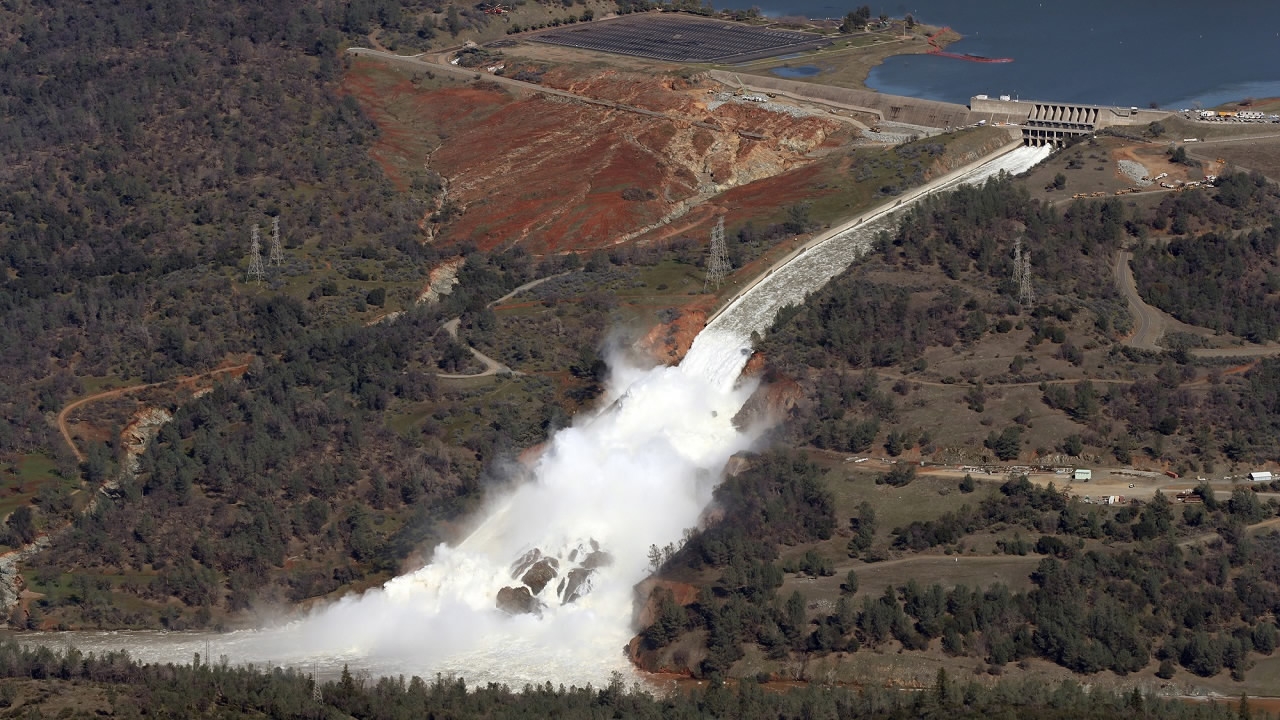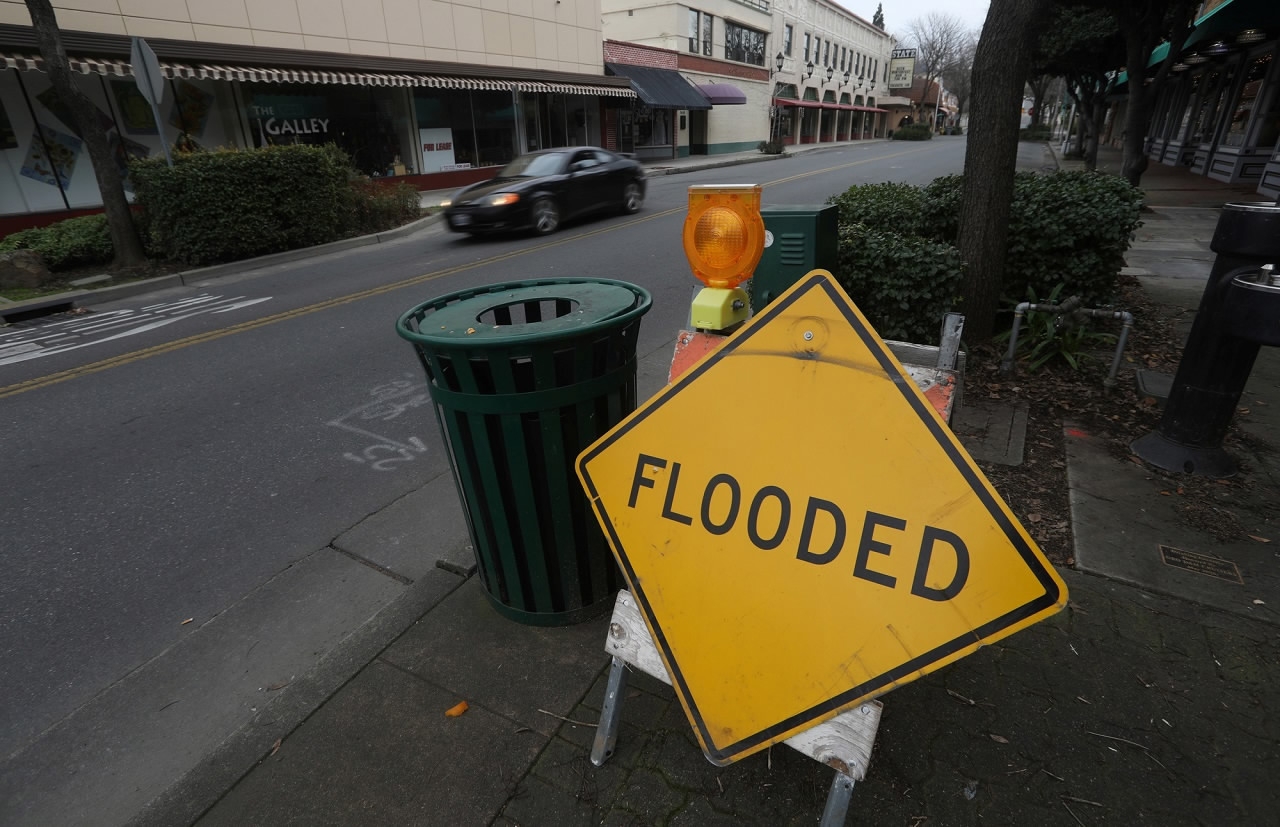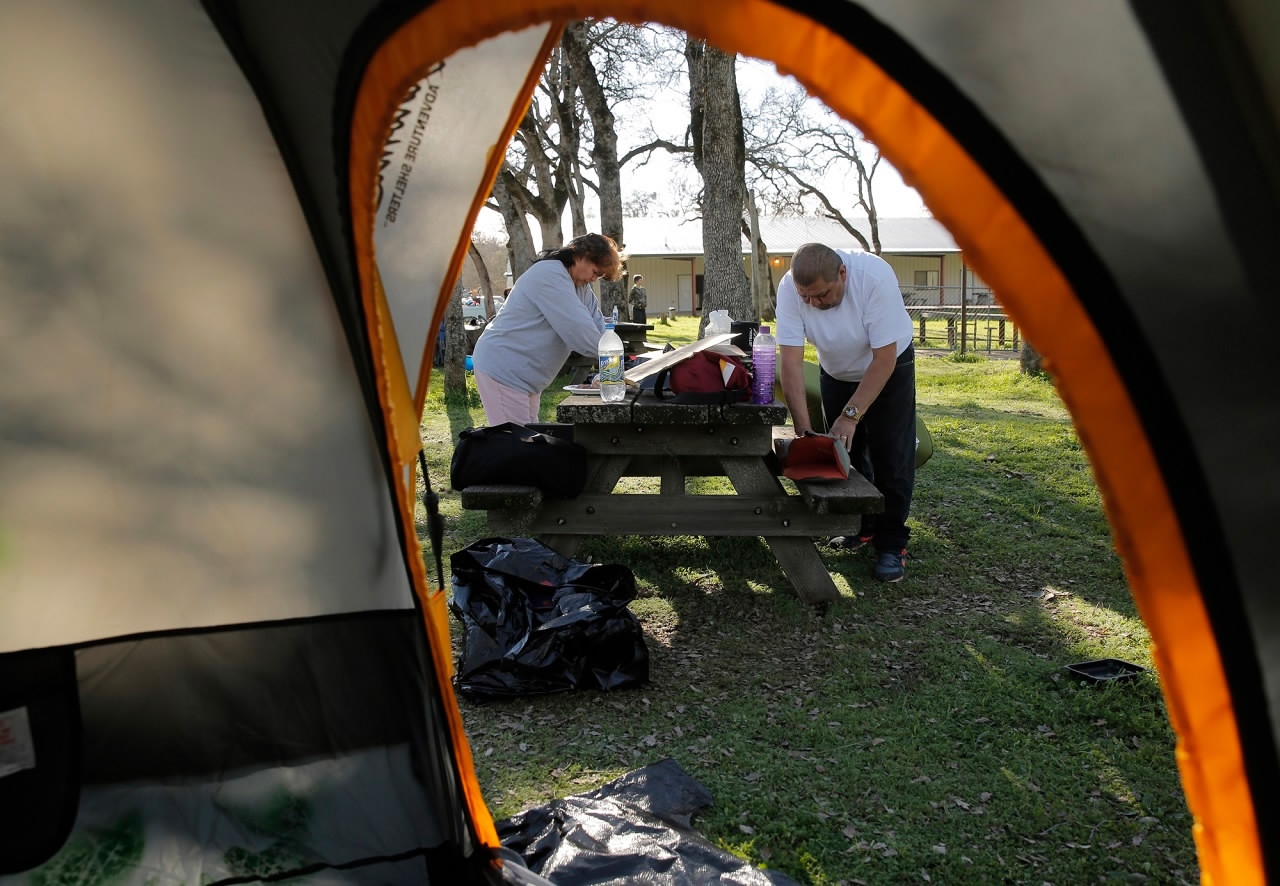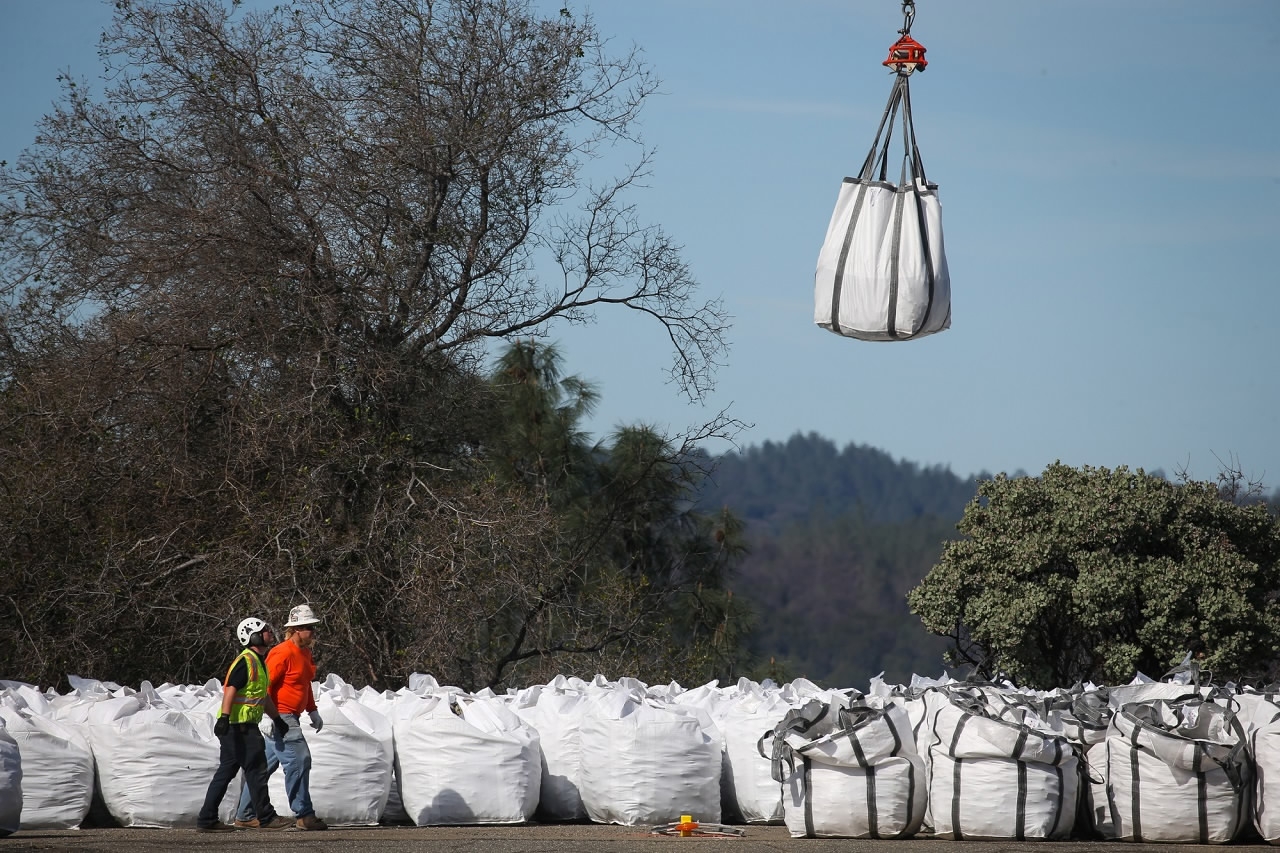California dam troubles have been there for decades
2017-02-16 10:13:48 GMT+8

Editor
Gong Zhe
For nearly 50 years, the Oroville Dam has provided a water lifeline to residents across the state of California. But for the community in its shadow, the dam has been a source of contention and legal battles.
Weeks of winter storms triggered the near collapse of two of the dam's spillways this past week and temporary evacuation of nearly 190,000 residents.
The crisis also brought to the surface lingering and looming problems faced by the local community.

A warning sign remains on the road after an evacuation order was lifted for communities downstream from the Lake Oroville Dam in Oroville, California, the US on February 15, 2017. /CFP Photo
Oroville's reservoir plays a vital role in capturing water from California's rainy, mountainous north and distributing it to agricultural lands, industrial tracts, and homes from the Bay Area to Southern California. But the community downstream says the benefits were not returned to Butte County.
In 2005, Butte County filed a motion with the Federal Energy Regulatory Commission (FERC), which licenses the dam, to intervene in the state's application to grant a new 50-year license.

Residents pack up their belongings and head home to Oroville after their stay at evacuation site on February 14, 2017. /CFP Photo
"For many years the costs to provide services to the project have outweighed the tourism benefits," the county argued at the time. The dam's recreation facilities had become "a magnet for crime, vandalism, trash dumping" that the county regularly had to police and clean up.
The nation's tallest dam created a job boom for the region during its construction in the 1960s. But once the project was completed, unemployment spiked and new homes were abandoned.

A helicopter picks up a bag of rocks at a staging area near the Oroville Dam on February 14, 2017 in Oroville, California. /CFP Photo
In 2008, Butte County also sued the state's Department of Water Resources, accusing it of avoiding a rigorous assessment of the effects of climate change on the dam.
The lawsuit came three years after Governor Arnold Schwarzenegger warned that climate change threatened to "greatly reduce the Sierra snowpack, one of the state's primary sources of water."
The case is now before California 3rd District Court of Appeals.
(Source: Reuters)
Copyright © 2017
